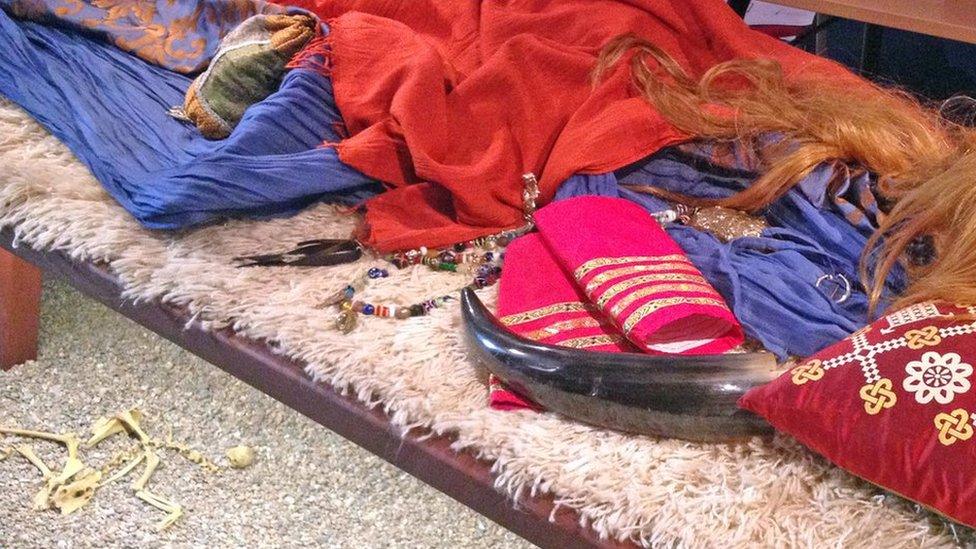Viking replica Arabic coin brooch found at Watton by detectorist
- Published
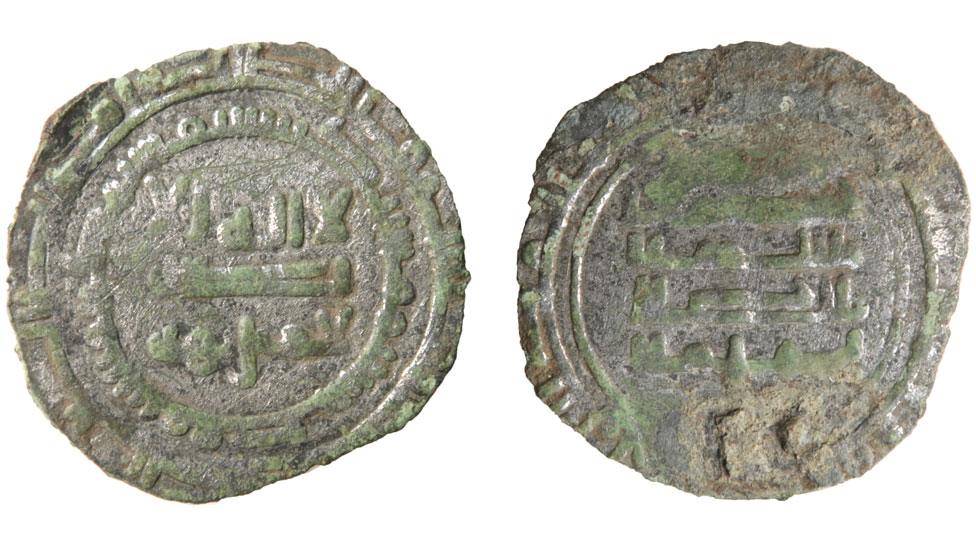
The Viking maker tried to recreate Arabic script, and while it is "partially legible" it is "not gibberish", said Adrian Marsden
A Viking-era brooch made in the style of an Arabic coin has been found by a metal detectorist.
The early medieval silver-plated Islamic replica dirham brooch was found at Watton, Norfolk.
Coin specialist Adrian Marsden said it appeared to be have been made by someone with no knowledge of Arabic script and is only "partially legible".
The maker would not have been literate and "if you don't understand, you're going to make mistakes", he said.
Its inscription would have been based on the standard Islamic formula la illah illah/wahdahu/la sherik lahu, meaning there is no god but Allah/alone/there is no equal, a treasure inquest heard.
Contact between the Muslim and Viking worlds has been long-established by historical accounts and many Arabic coins have been found in Scandinavian graves.
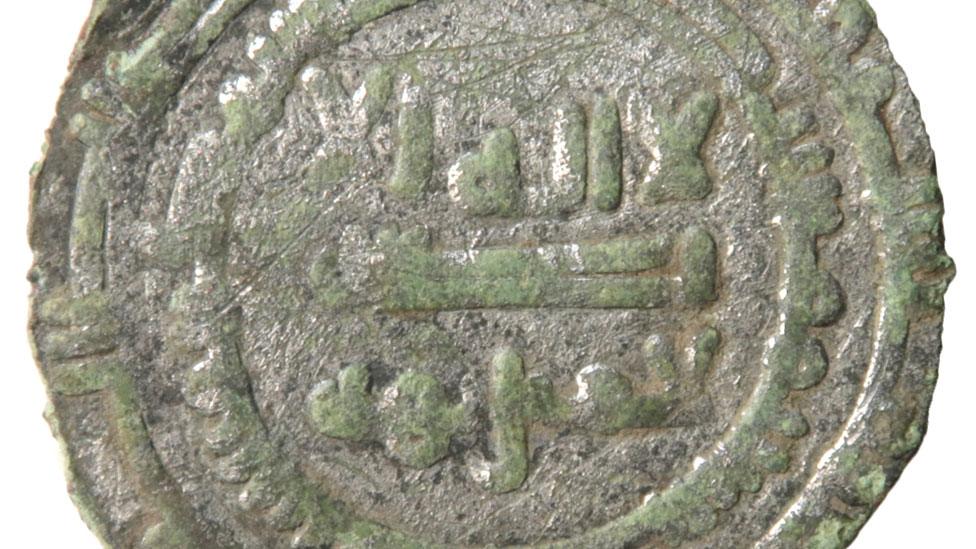
The maker would have seen Arabic coins, but not understood the writing
Dr Marsden, from the the Norfolk Historic Environment Service, said: "The Vikings do move about an awful lot so it is probably not as surprising as you might think to find Arabic replicas - if you look at the stuff found at Viking sites it's incredibly far reaching.
"Arabic silver dirhams are coming up through the river systems in Russia and Ukraine from Islamic lands, entering Scandinavia and from there come over to England with the Vikings."
The find is a nummular brooch - which means its design was derived from a coin - rather than a coin brooch, where an existing coin was repurposed.
The 9th or 10th Century find is 25.1mm (0.9in) in diameter and was probably struck on a die, meaning the design had to be reversed increasing chances of mistakes with the script.
But while it is only "partially legible it is not gibberish", said Dr Marsden.
"It's a bit unusual, but there are all sorts of odd things you find associated with the Vikings," the numismatist added.
It was declared treasure and Norwich Castle Museum is hoping to acquire it.

Follow East of England news on Facebook, external, Instagram, external and Twitter, external. Got a story? Email eastofenglandnews@bbc.co.uk, external or WhatsApp 0800 169 1830
- Published3 April 2023
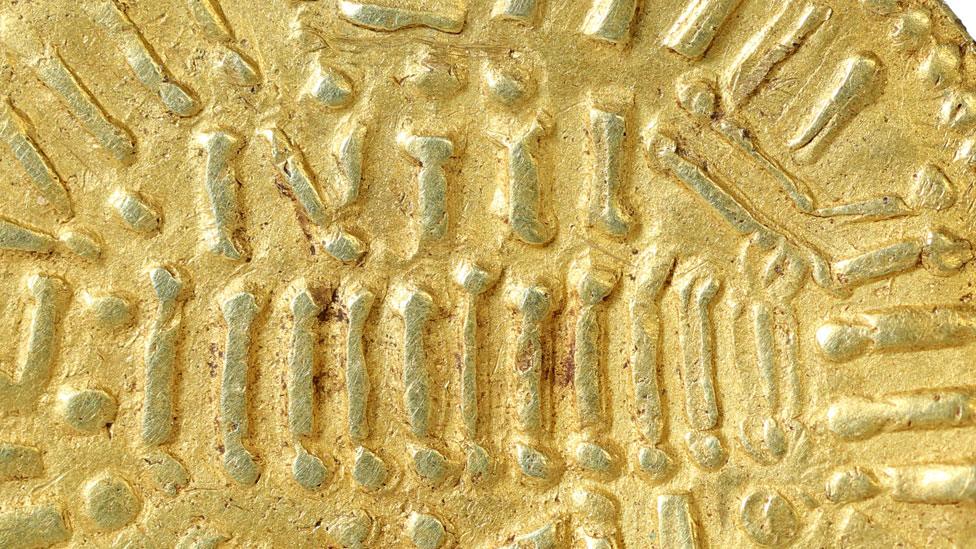
- Published7 August 2022
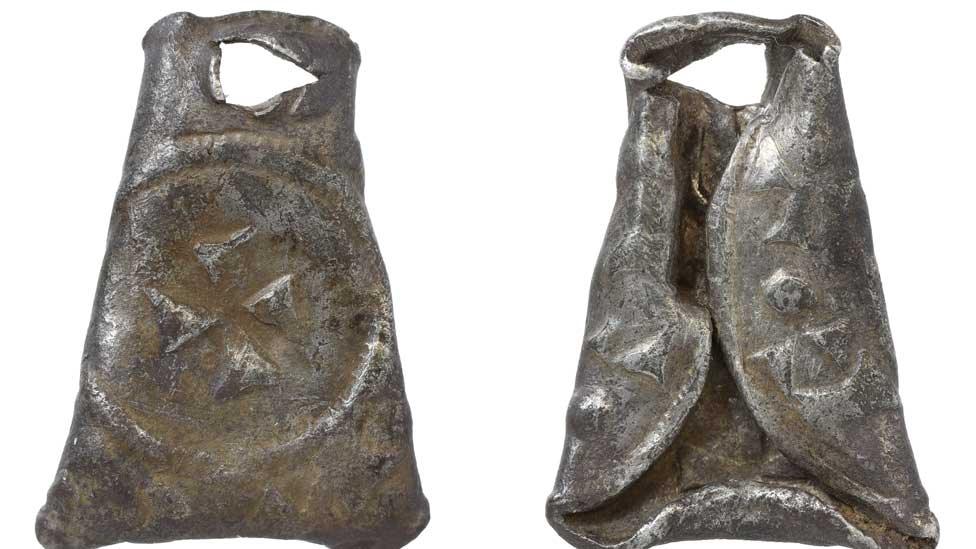
- Published11 July 2022
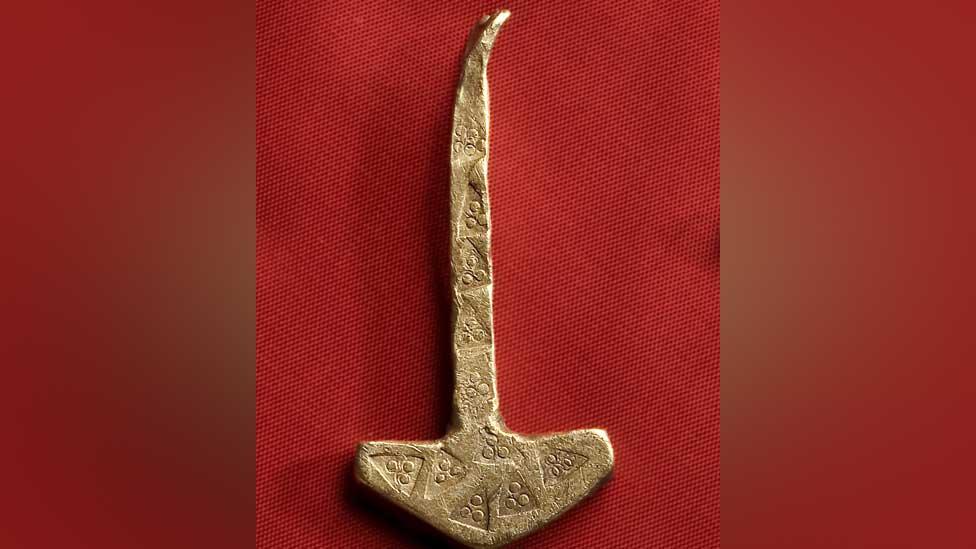
- Published29 November 2021
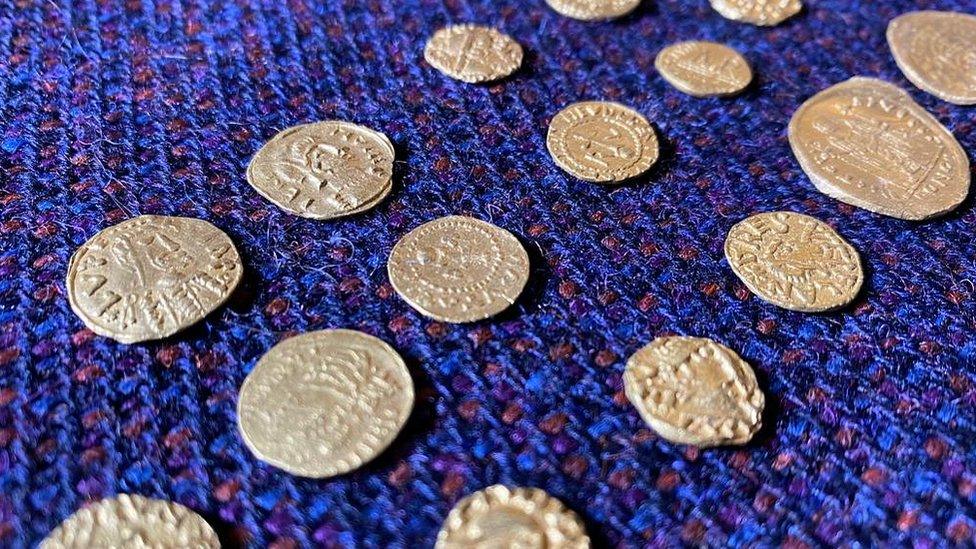
- Published25 October 2017
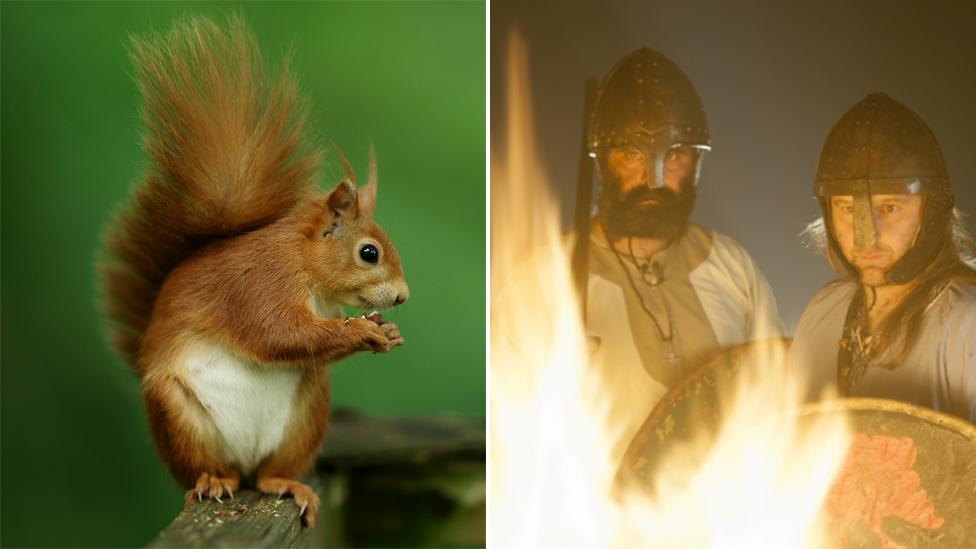
- Published12 October 2017
